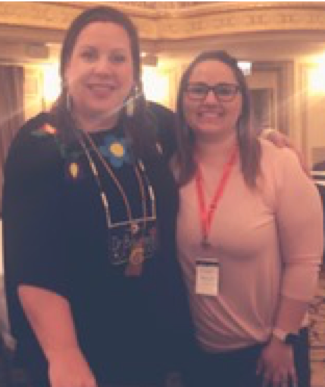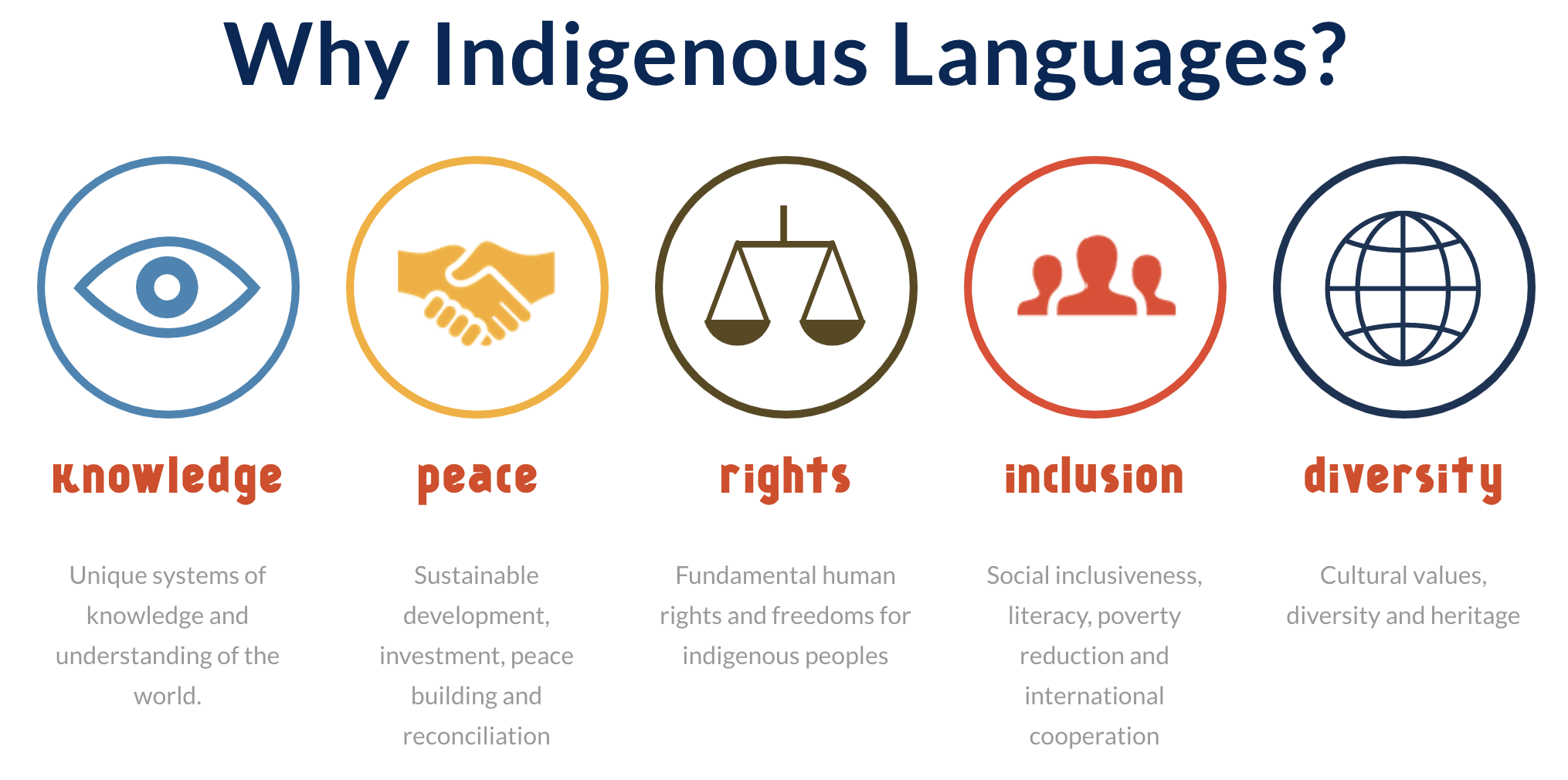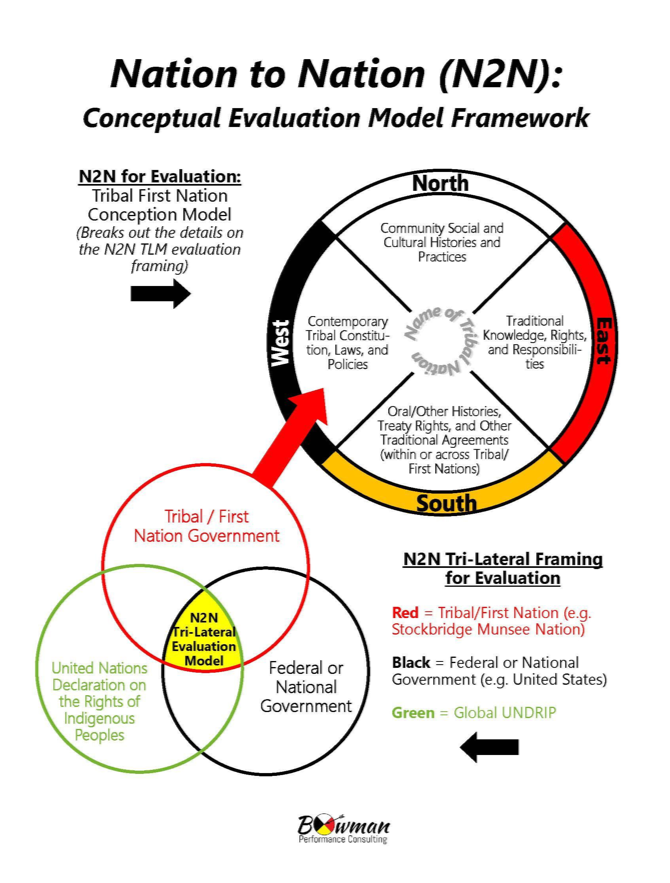Wednesday, August 28, 2019
 Nicole Bowman & Elizabeth Taylor-Schiro
Nicole Bowman & Elizabeth Taylor-SchiroAaniin indinawemaaganag! (Hello my colleagues/relatives!) I’m
Elizabeth Taylor-Schiro (Anishinaabe/Ojibwe) and the current Program Co-Chair of the
Indigenous Peoples in Evaluation TIG,
EvalIndigenous Member, and a PhD student in Evaluation Studies at the University of Minnesota.
Koolamalsi (Hello). I’m
Nicole Bowman (Mohican/Lunaape) and one of the Chairs for the
IPE TIG as well as a member of
EvalIndignous since 2016. I’m an evaluator at the
University of Wisconsin-Madison and
Bowman Performance Consulting.
This week’s AEA365 posts aim to reflect on the Evaluation 2019 theme of
Contribution, Leadership, and Renewal with today’s post addressing how evaluation can center Indigenous perspectives. As Indigenous evaluators, our commitment to renewal, reawakening, and remaining a relevant part of evaluation through theory, method, and traditional knowledge remains strong.
LanguageWhen walking in two worlds, Indigenous culture/communities and mainstream educational/professional systems, it is difficult to ignore the differences in verbiage and language that are used. These differences are critical because language is not only a tool of communication; language is a window into culture, identity, and values. In mainstream evaluation language and verbiage, it is not uncommon to see terms like: stakeholder, study, evaluator goals, inquiry, accommodate, and more. This type of language implies a disconnect between the evaluator and the communities they are partnering with, and situate evaluation as an impersonal science. In Indigenous evaluation, it is more common to see terms like:
tribal goals, community, lived experience, sharing, and alignment. This type of language implies a relationship between the evaluator and community; and, it emphasizes connection and inclusion of culture (
see indigenous language figure). When using this latter type of language in evaluation it is not only more ethical in that it optimizes benefits to the community, it also creates more valid and useful outcomes for the people whose goals should be the focus of your evaluation.
 Screenshot from website: https://en.iyil2019.org/Unlearn, Learn, and Re-learn
Screenshot from website: https://en.iyil2019.org/Unlearn, Learn, and Re-learnEvaluation scholars have offered culturally responsive evaluation theories, methods and frameworks that attempt to integrate community values but there are still gaps; and, none address the unique legal and political components of sovereign Tribal/First Nations Governments. A Nation-to-Nation (N2N) Systems Evaluation Framework (see figure to the right) can be used to apply Tribal Critical Theory (TCT) to systems and governance evaluations to address this gap. Building on an
emerging Tribal Critical Systems Theory (TCST) to include culturally responsive
and legally inclusive evaluation design at systems and governance levels, TCST is applied within an emerging N2N systems evaluation model helping evaluation practitioners conceptualize systems evaluation design used between sovereign governments.

The use of an
N2N policy systems map helps us critically think through systems relationships and practices of Tribal and public governments, and as we do we must consider the sources of motivation, knowledge, power, and legitimation as we grow to unlearn, learn, and re-learn how to bring together evaluation, policy, and governance between Tribal and non-Tribal nations. Additionally, these frameworks can be a helpful tool to critically reflect on our evaluation work in any community or program setting.
The American Evaluation Association is celebrating Contribution,
Leadership, and Renewal Week where a group of Minnesota-based evaluators reflect on the theme of Evaluation 2019, to be held in Minneapolis, MN. Do you have questions, concerns, kudos, or content to extend this aea365 contribution? Please add them in the comments section for this post on the
aea365 webpage so that we may enrich our community of practice. Would you like to submit an aea365 Tip? Please send a note of interest to
aea365@eval.org. aea365 is sponsored by the
American Evaluation Association and provides a Tip-a-Day by and for evaluators.

About AEA
The American Evaluation Association is an international professional association and the largest in its field. Evaluation involves assessing the strengths and weaknesses of programs, policies, personnel, products and organizations to improve their effectiveness. AEA’s mission is to improve evaluation practices and methods worldwide, to increase evaluation use, promote evaluation as a profession and support the contribution of evaluation to the generation of theory and knowledge about effective human action. For more information about AEA, visit www.eval.org.